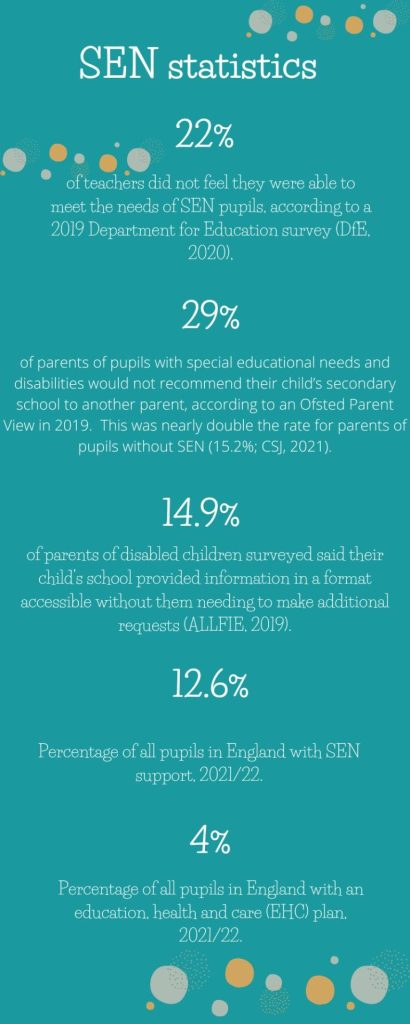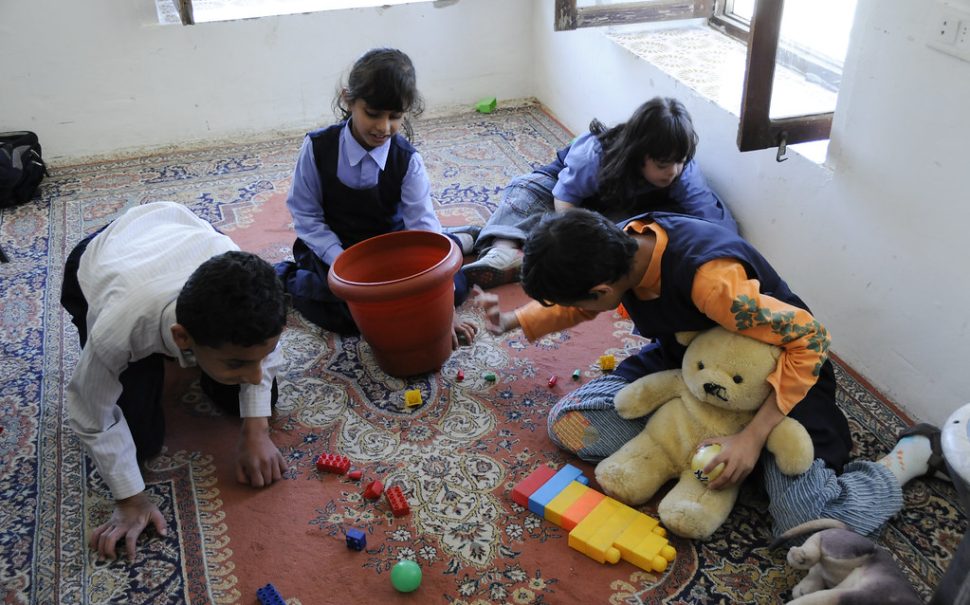A Wandsworth organisation is calling for more support for children with Special Educational Needs (SEN), as children and their parents are increasingly left feeling isolated in school and society.
Just under 1.5 million children in the UK have SEN, according to the government, a figure that has risen by 4.3% since last year and many children of them have described feeling out of place, different, or as though they do not fit in.
Sen Talk is a Wandsworth organisation that targets these youths in mainstream education who are unfortunately being overlooked and misunderstood.
When asked about education Annaliese Boucher, Sen Talk CEO made clear we should not assume schools lack resources to support SEN students, but rather suggested we highlight intersectional factors which lead to some of the poor outcomes for this cohort.
Some of these factors can include, individual school culture, assumptions of capacity for children and
young people with additional needs and a dominant standard driven society which favours high
achievements.
Boucher said: “To value neurodiversity and increase equality, knowledge is power, and by challenging misconceptions around autism and ADHD whether it be perpetuated by media stereotypes, or cookie cutter approaches to support in education and elsewhere.
“We need to move beyond the idea of creating awareness and rather promote acceptance.”
Boucher also emphasised the importance of supporting children in pinpointing their problem areas and providing mentorship to overcome these barriers.
Additionally, Sen Talk aim to increase access to equal opportunities, and challenge discrimination and stigma in society at large.
The Sen Talk CEO said: “We value a person-centred approach that listens to the community and values experience, to understand the barriers that autistic and ADHD children and young people and their families are facing.”
Learning support mentor ‘B’ Fileman claimed many children were leaving mainstream schools due to lack of support and understanding, to attend charity lead special schools, but consequently are not able to access GCSEs because the same opportunities are not being given.
Fileman, who experienced her own learning difficulties through education, said: “It’s very difficult. You feel different to everyone else, you feel like you stick out like a sore thumb.
“You know coming in with yellow tinted glasses you feel very awkward and very much looked at, people would say ‘oh you weirdo why do you have to wear special glasses?’.
“It was very frustrating to be picked on because of something I had no control over.”
To improve the treatment of SEN children in education, Fileman advocated for mandatory placements in SEN schools during teacher training, as it is currently optional.
She believed only by experiencing it first hand will educators grasp a better understanding of how to benefit the students fully.
She added: “I don’t believe there’s enough empathy or understanding of SEN children.
“It is not just the stereotypical imagery people are used to, they think it’s just somebody with ear defenders in a corner when actually there’s a lot of social and emotional and visual things that can affect children in education.”
When discussing how we can end these perceptions in our community, Valenza Stearns, Sen Talk Family anf Community Engagement officer, believed as a society we must try to understand everyone’s individual experiences through life and be curious about those who are different from us.
Stearns said: “We can still see the culture of institutional parent blame in schools and in social care, where problems at home or ‘parenting problems’ are seen as the root cause of behavioural or SEMH challenges for children and young people.”
Sen Talk tackles these issues through many after school clubs for those aged 5-16, that offer opportunities to build peer relationships, capacity-building around social and emotional well-being, self-esteem, and resilience.
Additionally, there is a lot of support and many resources for parents.

The issue of ASD and autism misdiagnosis, particularly in girls, has also caused many young people and their families to suffer, however a study from several universities revealed last week a new method that could help diagnose children with neurodevelopmental disorders.
Researchers at Flinders University and the University of South Australia (UniSA) worked with McGill University, University College London and the Great Ormond Street Hospital for Children, to discover how signals in the retina responded to light in children with Autism Spectrum Disorder and ADHD.
Using a test that measures the electrical activity (ERG) of the retina in response to light, the scientists concluded children with ADHD showed higher ERG energy and those with ASD had less.
Dr Paul Constable, research optometrist at Flinders Universtiy said: “If we can identify these differences and localise them to specific pathways that use different chemical signals that are also used in the brain, then we can show distinct differences for children with ADHD and ASD and potentially other neurodevelopmental conditions.”
Featured image credit: World Bank via Flickr under CC BY-NC-ND 2.0 license





